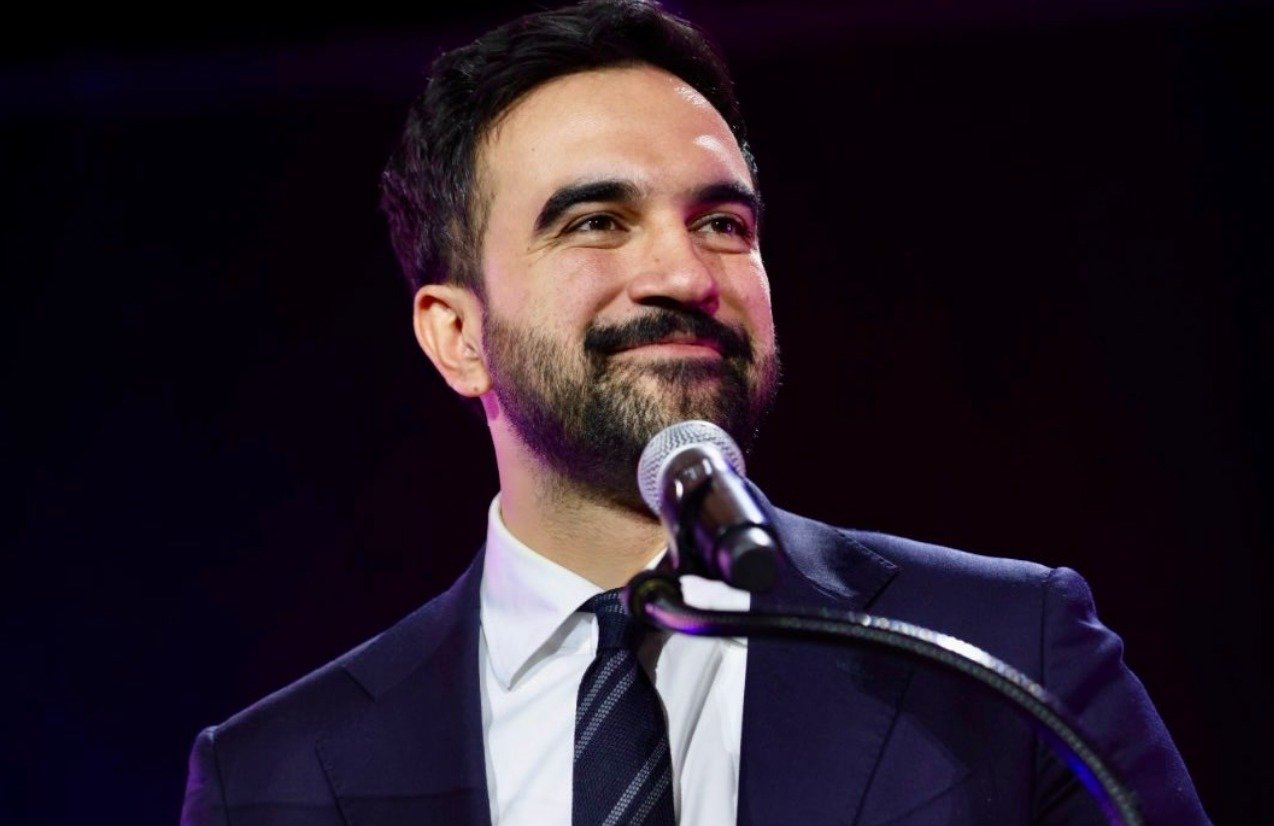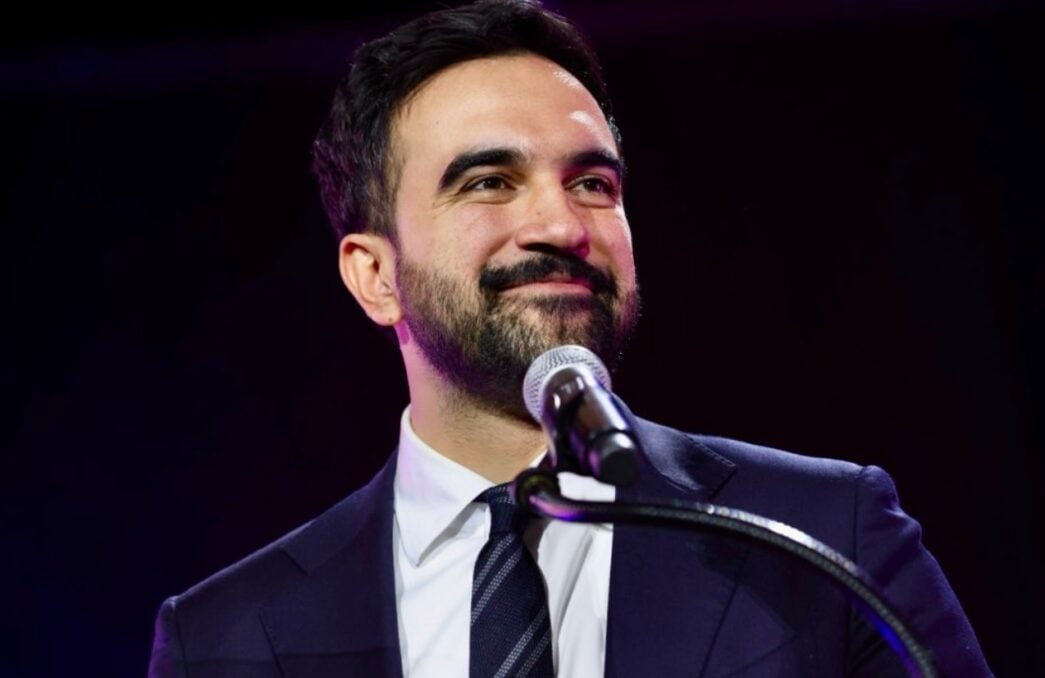BY ABDULGAFFAR AHMAD
For the discerning ones, the recent election of Zohran Mamdani as the new mayor of New York has stirred political waves across the globe, but not for the reasons one might expect. Mamdani’s win is not just the result of his policies or his vision for the city, but of a resilient and strategic campaign against some of the most influential figures in American politics and business figures such as Donald Trump, Elon Musk, and other top corporate leaders.
These high-profile individuals, along with political heavyweights, invested millions in currencies to stop Mamdani’s ascension to office. However, despite the odds and the onslaught of financial power aimed at derailing his candidacy, Mamdani’s victory serves as an inspirational blueprint for political movements worldwide, including Nigeria.
Zohran Mamdani’s victory was nothing short of a political David versus Goliath battle. Early on, Mamdani faced significant opposition from some of the most powerful figures in both the public and private sectors. Donald Trump, Elon Musk, and numerous wealthy business leaders and corporations poured vast sums into opposing Mamdani’s candidacy, recognizing that his potential win could challenge the political status quo.
To break it down, reports suggest that a humongous over $50 million was spent by political action committees (PACs) and wealthy backers attempting to either suppress Mamdani’s message or outright defeat him. The money, often directed towards negative ads and attacks, aimed to undermine Mamdani’s grassroots movement. However, despite these enormous financial obstacles, Mamdani was able to secure his victory. This success can be attributed to several key factors that played into his strategy including grassroots mobilisation, well-coordinated targeted messaging, youth engagement and staying true to one’s vision.
Advertisement
Taking the factors in turn, staring with grassroots mobilization, Mamdani’s campaign focused on building a grassroots network of volunteers and donors who were committed to change, not just maintaining the existing power structures. Unlike the super PACs that drowned out many smaller voices with their financial clout, Mamdani relied on the authenticity of his message and the genuine desire for change among New Yorkers.
On targeted messaging, Mamdani understood the power of targeted, data-driven messaging. His team invested in understanding the concerns of everyday New Yorkers particularly those disenfranchised by the political establishment and crafted a message that resonated deeply with their needs.
Observers have also suggested that youth Engagement is the third factor that assisted Mamdani to secure his win. One of the most impressive aspects of Mamdani’s campaign was his ability to engage young voters. The youth’s passion for change and willingness to support candidates who championed progressive ideals were central to Mamdani’s success. His campaign didn’t just speak to the issues; it offered hope for a better future.
Advertisement
Lastly, the philosophy of staying true to Mamdami’s vision has also been identified by keep observers as being responsible for his win. Despite the attacks from the political elite, Mamdani remained steadfast in his beliefs. He did not waver in the face of corporate money or personal attacks. His commitment to progressive values, particularly those around housing, climate change, and inequality, struck a chord with voters who felt neglected by traditional politics.
From all indications, the story of Zohran Mamdani’s victory offers a wealth of lessons for the political landscape, particularly in emerging democracies like Nigeria. Nigeria’s political system is often seen as one that is heavily influenced by powerful political figures and wealthy individuals who use their money to influence elections. However, Mamdani’s success proves that it is possible for fresh voices, even in the face of overwhelming financial opposition, to win if they leverage the right strategy.
The Nigerian political scene is currently at a crossroads, with younger, more dynamic leaders pushing for change. The recent 2023 Nigerian general elections were a testament to the growing discontent with the old guard. Young Nigerians, especially in cities like Lagos, Abuja, and Port Harcourt, are clamouring for leaders, who can offer innovative solutions to issues such as unemployment, corruption, and poor infrastructure.
One of the best examples of a rising political leader in Nigeria is Abdulrahman Bashir Haske, a young, energetic figure in Adamawa politics. Haske, member of the ruling All Progressives Congress (APC) in Adamawa State, has been a consistent voice for change, especially among the youth. As a philanthropist, a CEO, who has thrived in the private sector, and an advocate for community development, Haske embodies the kind of new leadership that Mamdani’s victory champions.
Advertisement
Abdulrahman Bashir Haske is not just another politician. He is a young man, who understands the struggles of the people of Adamawa. His leadership style is rooted in his experience in the private sector, where he successfully managed businesses and created jobs. He has used his personal wealth to support charitable causes, improve education, and empower youth in Adamawa.
In a state like Adamawa, where political dynamics have often been dominated by older, entrenched figures, Haske’s youthful energy and fresh perspective offer a stark contrast. Much like Zohran Mamdani, Haske has tapped into the hunger for a new direction, a desire for transparency, and a determination to rebuild a system that has failed too many of the people.
For the youth of Adamawa and Nigeria as a whole, Haske’s campaign offers a roadmap. He has been vocal about the need for a political revolution one that isn’t driven by financial power or patronage but by a genuine commitment to the people. Haske has positioned himself as the kind of leader, who will not be swayed by the establishment’s money and influence. Instead, he has embraced grassroots campaigning, focusing on directly engaging with voters and addressing their concerns.
Just as Mamdani relied on community-based support, Nigerian youth must rally together, not just around specific candidates but around the larger cause of good governance. Mobilising at the grassroots level is a powerful tool for counteracting the financial clout of political elites. Also, Mamdani’s campaign utilised social media, digital ads, and grassroots outreach to effectively target younger voters. In Nigeria, where social media has played a significant role in political movements (such as the #EndSARS protests), youth should leverage these platforms to spread their message and organize campaigns.
Advertisement
Mamdani never compromised his progressive vision, even when faced with pressure. Similarly, Nigerian youth must hold on to their ideals and resist being co-opted by the establishment. The fight for a better Nigeria cannot be sold to the highest bidder. Like Mamdani, Haske is challenging the established order in Adamawa. Nigerian youth must look at his campaign as a model for how to overcome the overwhelming influence of entrenched political figures. This means putting in the hard work, taking the fight to the people, and focusing on creating a vision of the future that resonates with young Nigerians.
Much like Mamdani’s campaign, which emphasized issues such as inequality, housing, and climate change, Haske’s background as a philanthropist and CEO gives him a unique position to understand the practical needs of the people. Nigerian leaders who come from the private sector or have a track record of community work should leverage their expertise to offer tangible solutions.
Advertisement
Indeed, Zohran Mamdani’s victory is proof that when young people mobilize, strategize, and stay true to their values, they can challenge the power structures of even the most entrenched political systems. In Nigeria, where the political landscape has been dominated by the same political families and elites for decades, Mamdani’s success offers hope that a political revolution, led by dynamic and visionary leaders like Abdulrahman Bashir Haske, is possible.
For Nigeria, particularly in states like Adamawa, the key to success lies in empowering young leaders, fostering grassroots movements, and harnessing the power of the digital age to engage voters. As Mamdani has shown, it’s not about how much money you have it’s about the strength of your message, the authenticity of your commitment, and the power of the people who believe in you.
Advertisement
The youth of Nigeria, like those in New York, can make a difference. They must take lessons from Mamdani’s victory, fight for their rights, and work together to create a future that serves everyone not just the powerful few. The time for change is now.
Ahmad, a public affairs analyst, lives in Abuja and can be reached on: [email protected]
Advertisement
Views expressed by contributors are strictly personal and not of TheCable.

